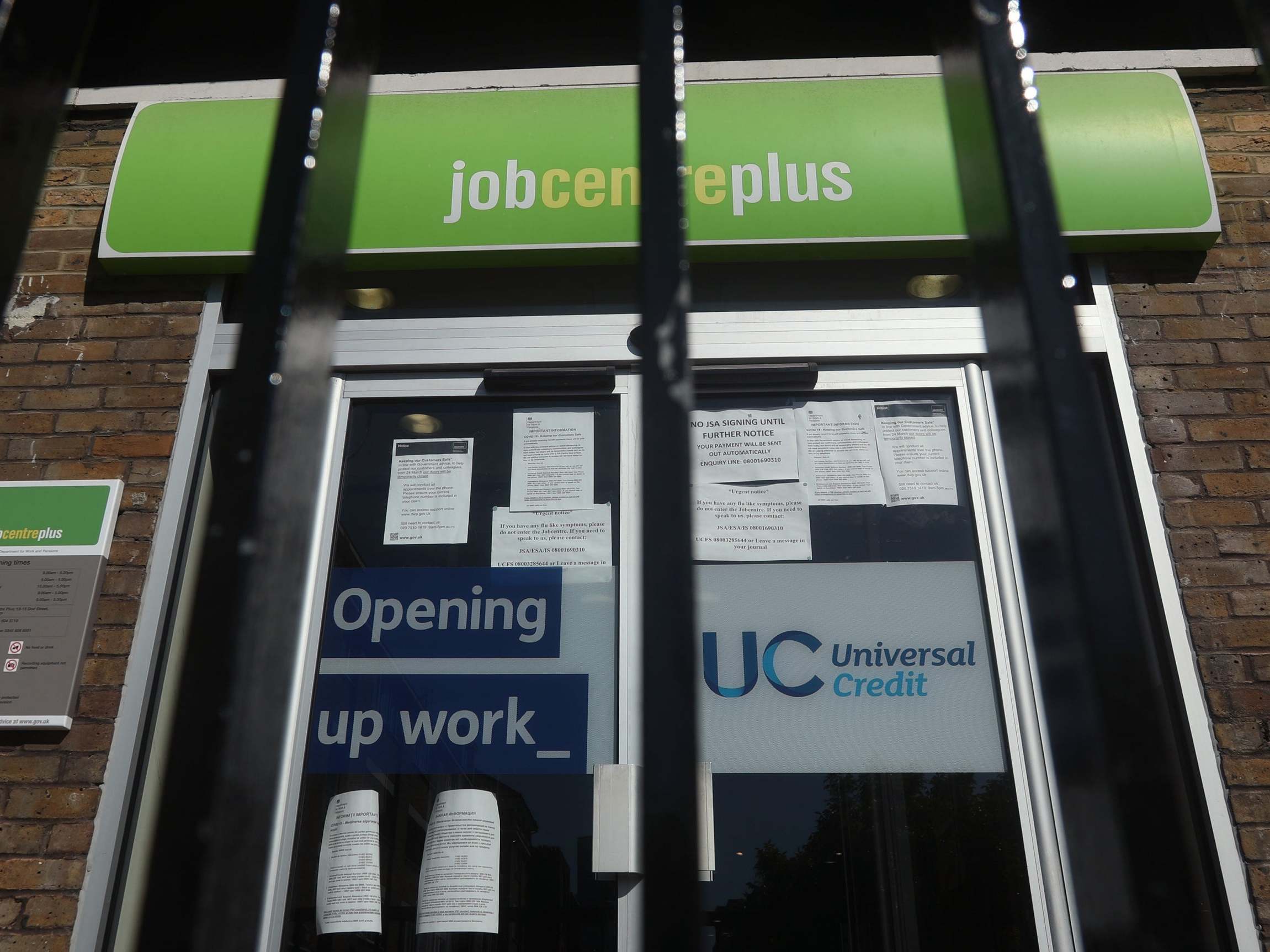Coronavirus job losses threaten ‘generational scars’, CBI warns
Wave of redundancies feared in autumn as government winds down employment support, Chris Baynes reports


Job losses in the wake of the coronavirus pandemic “will leave generational scars” without “immediate intervention” to create jobs and train young people, a leading business group has warned.
The CBI predicted a wave of redundancies in the autumn as government support such as the furlough scheme is wound down.
It said ministers must prioritise jobs and skills training, especially for young people, to “minimise the human cost”.
The UK faces a deeper recession than any country in the developed world as a result of the pandemic, according to the Organisation for Economic Cooperation and Development (OECD), which has forecast that GDP may collapse by 11.5 per cent this year.
In a letter to Boris Johnson, CBI director general Dame Carolyn Fairbairn said: “Redundancies will rise fast over the autumn as support schemes, especially the jobs retention scheme, wind down. Past recessions show the impact of joblessness is deeply uneven.
“Without immediate intervention, pre-crisis inequalities across regions, gender and race will worsen. Long-term unemployment will leave generational scars.
“Smart, fast policy is needed now to accelerate the process to minimise the human cost and in particular protect the futures of our young people.”
The CBI published a series of proposals, including transforming job centres into “job and skill hubs”, investing in the green economy, and a time-limited scrappage scheme to incentivise the take-up of electric vehicles.
The group also called for the acceleration of the ultrafast broadband roll-out to all parts of the country, greater flexibility on apprenticeships, and a national programme to “make every home a green home”. On Wednesday the UK's internet speed were revealed to be among the slowest in the developed world.
Dame Carolyn told the prime minister: “The last few months have seen a nation rightly and relentlessly focused on health. That will remain the case for some time. But this must not stop the country from implementing an ambitious economic recovery plan.
“Amidst all the uncertainty, one thing is clear: the UK will only build back fast and better through a market-driven plan that supports sustainable growth. Dynamic enterprise is the only way to unleash the potential of our country and get ahead.”
Rishi Sunak, the chancellor, has previously warned the UK faces a “severe recession the likes of which we have not seen” a result of Covid-19.
He announced last month that employers would have to pay 10 per cent of furloughed workers’ wages from September and 20 per cent from October as the government brings its coronavirus job retention scheme to an end. Some 8.4 million workers are on furlough, meaning they are not working and the government is paying 80 per cent of their wages up to £2,500 a month.
Business groups had called for the government to adapt the furlough scheme in specific ways for different industries, giving more help to those firms such as pubs and restaurants that face continued loss of income even as the lockdown is eased. But the Treasury rejected this proposal as too complicated to implement.
One in five UK workers – the equivalent of about 6 million people – believe they could lose their jobs within six months, according to research published last month by the Centre for Labour and Social Studies
The OECD forecasts that the UK economy will shrink by 11.5 this year if there is no second wave of Covid-19 infections. However, it predicts GDP will collapse by 14 per cent by if there is a second spike.
The organisation’s chief economist Laurence Boone said coronavirus would have “dire and long-lasting consequences for people, firms and governments”.
She added: “Extraordinary policies will be required to walk the tightrope towards recovery. Even if growth does surge in some sectors, overall activity will remain muted for a while.
“Governments can provide the safety nets that allow people and firms to adjust, but cannot uphold private sector activity, employment and wages for a prolonged period.”
Mr Sunak said: “In common with many other economies around the world, we’re seeing the significant impact of coronavirus on our country and our economy.
“The unprecedented action we’ve taken to provide lifelines that help people and businesses through the economic disruption will ensure our economic recovery is as strong and as swift as possible.”
Join our commenting forum
Join thought-provoking conversations, follow other Independent readers and see their replies
Comments